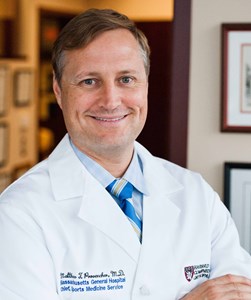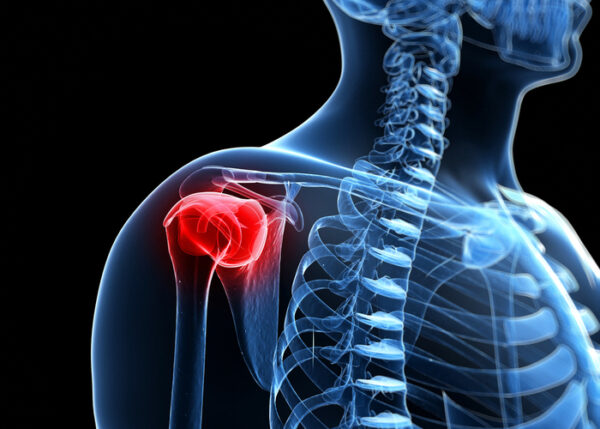Reverse Shoulder Replacement Surgeon

Are you suffering from severe shoulder arthritis? If so, you may be a candidate for a reverse shoulder replacement. Reverse shoulder replacement may be recommended in patients who have developed a complex type of shoulder arthritis called “rotator cuff tear arthropathy.” Reverse shoulder replacement surgeon, Dr. Matthew Provencher provides diagnosis and both surgical and nonsurgical treatment options for patients in Vail who have developed severe shoulder arthritis. Contact Dr. Provencher’s team today!
What is a Reverse Shoulder Replacement?
Shoulder arthritis is a degenerative condition responsible for chronic joint pain, weakness, and limited mobility in millions of Americans. The shoulder condition is fairly common in the older population and typically develops after a shoulder injury or from wear and tear of the joint gradually over time. At the beginning of arthritis treatment, many patients will be prescribed non-surgical measures to alleviate pain and other troublesome symptoms. Conservative measures are successful in certain patients, while other patients require a surgical intervention if the condition progresses. Vail, Aspen, Colorado Springs and Denver, Colorado area orthopedic shoulder surgeon, Dr. Matthew Provencher offers a specific technique of shoulder replacement surgery, known as reverse shoulder replacement, to help return patients to an active lifestyle when all other treatment measures have failed.
When to Have Reverse Shoulder Replacement
Dr. Provencher generally recommends a reverse shoulder replacement in patients who suffer from a complex form of shoulder arthritis known as rotator cuff tear arthropathy. Rotator cuff tear arthropathy occurs when the muscles that help center the ball (head of the humerus) in the socket (glenoid portion of the shoulder blade) move higher than the socket because of a long established rotator cuff tear.
A traditional shoulder replacement surgery depends on the rotator cuff muscles to keep the replacement components in place and provide movement, and is typically reserved for shoulder arthritis patients. A reverse shoulder replacement depends on the deltoid muscle for mobility and stability. A reverse procedure is effective in many patients with rotator cuff tear arthropathy, a rotator cuff tear that cannot be repaired and a failed shoulder replacement surgery.
How is a Reverse Shoulder Replacement Different from a Shoulder Replacement?
A reverse shoulder replacement is very similar to a traditional shoulder replacement surgery since both procedures require Dr. Provencher to replace the degenerated cartilage and bone within the shoulder joint with metal and medical-grade plastic components. This shoulder replacement technique changes the overall mechanics of the joint by allowing the deltoid muscle to move and stabilize the joint. In a normal, healthy shoulder joint, the rotator cuff is responsible for stabilization and movement.
Dr. Provencher begins this shoulder replacement surgery technique by creating a small incision in the front area of the joint. He will then remove the natural, degenerated cartilage and bone, and replace it with synthetic components. The reverse shoulder replacement involves a reversal of the ball and socket. Dr. Provencher will place the ball on the glenoid (normally the socket) and the socket on the humerus (normally the ball). The result is pain-free, fluid movement of the shoulder joint in most patients.

What is the Recovery After Reverse Shoulder Replacement?
Following reverse shoulder replacement, it is critical patients follow rehabilitation closely as prescribed by Dr. Provencher since this therapeutic process is a very important step in recovery. It is strongly suggested that patients work with the in-house physical therapists at Howard Head Sports Medicine to optimize their rehabilitation. Patients will be placed into a specific physical therapy program where strength, range of motion and overall mobility are addressed. After a recovery period of approximately 2-3 months, patients are typically able to get back to their daily activities and note significant improvements in pain and overall joint function.
For additional resources on reverse shoulder replacement, or to determine if you are a candidate for this shoulder replacement surgery, please contact Dr. Matthew Provencher, shoulder surgeon serving patients in the Vail, Aspen, Colorado Springs and Denver, Colorado area.